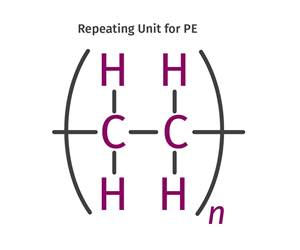US Department of Energy Announces Funding for Critical Industrial Technologies
Funded projects include programs to decarbonize production of polymer feedstock chemicals and to develop bioplastic packaging.
The U.S. announced $136 million in funding to 66 projects aimed at development of critical industrial technologies for reducing energy demand and improving productivity.
Selected projects are aimed at the manufacturing of chemicals and fuels, iron and steel, cement and concrete, forest and paper products, food and beverage, glass and other industries. Among the chemical manufacturing projects are two directly related to the production of polymer feedstocks, and among the food and beverage projects are two aimed at the advancement of bioplastic packaging.

The Department of Energy announced funding intended to de-risk innovative technologies in several subsectors. Source: U.S. Department of Energy
Enabling Carbon-Efficient Production and Utilization of Dicarboxylic Acids from Polyolefins
Sandia National Laboratory and its partners Danimer Scientific, , and Lawerence Berkeley National Laboratory are receiving $2.37 million for their project, which aims to use polyolefins from material recovery facilities (MRFs) to produce dicarboxylic acids (DCAs) that will in turn be used to manufacture plastic products including polyurethane (PU) and polyhydroxyalkanoates (PHA). Using novel preprocessing technologies and a catalytic oxidation process to deconstruct polymers at mild conditions, the project will address the full value chain with specific industry partners at each step. Utilizing waste plastics could reduce the need for petroleum-based products and has the potential to reduce carbon emissions by over 60% and energy consumption by 30% compared to fossil-derived derivatives.
Optimization of the US’ First Biological Textile Recycling Pilot Plant to Decarbonize Polyester Production
A project by Protein Evolution and its partners , and the National Renewable Energy Laboratory (NREL) is receiving $3 million in funding with the aim to optimize and scale up an enzymatic recycling process to convert previously unrecyclable textile waste into high-quality terephthalic acid (TPA), a precursor to polyethylene terephthalate (PET). Unlike other biological recycling methods, Protein Evolution can also isolate textile dyes that often inhibit enzymatic recycling while also eliminating chemical waste streams associated with biological treatment. Because PET fibers make up a majority of all PET produced, the potential impact is significant with the potential to reduce carbon emissions by as much as 70% compared to conventional fossil-derived PET production.
Plant-Based Packaging
Funding in the amount of $1 million is being awarded to this project led by the University of Tennessee, Knoxville, and its partners (Plant Switch, Georgia Institute of Technology, Oak Ridge National Laboratory, University of New York College of Environmental Science and Forestry). The project seeks to identify preferred bioresources and extraction protocols to isolate a “near white” lignin resource with chemical structures optimized for biocomposite production targeted at manufacturing bio鈥恉erived films, bottles and packages. The project plans to optimize low-chromophore lignin extraction technology, lignin interfacial properties with polylactic acid (PLA) and polybutylene succinate (PBS), and enhanced lignin-PBS and lignin-PLA physical strength properties. The proposed research plan, if successful, would present opportunities for a sustainable and regenerative bio-economy, improve the properties compared to a neat polymer matrix, reduce emissions and lower the cost of production. The project outlines a clear path for commercialization, supported by collaborations with industry partners, enhancing its potential impact.
Sustainable, Net Zero Biopolymer Film for Food Packaging to Decarbonize the Food and Beverage Industry
Another $1 million will go to this project, in which and its partners , and Amy’s Kitchen aim to produce a commercial-ready prototype PHA-based film as a direct, functional replacement for biaxially-oriented polypropylene (BOPP) films synthesized almost entirely from bio-based feedstocks. The project plans to develop PHA-based formulated pellets to replace conventional plastics in films for food packaging. The proposed research plan would advance the development of a biodegradable, PHA-based film with a lower carbon impact, improve performance and identify comparable properties to conventional food packaging materials.
Related Content
The Fundamentals of Polyethylene – Part 2: Density and Molecular Weight
PE properties can be adjusted either by changing the molecular weight or by altering the density. While this increases the possible combinations of properties, it also requires that the specification for the material be precise.
Read MorePolyethylene Fundamentals – Part 4: Failed HDPE Case Study
Injection molders of small fuel tanks learned the hard way that a very small difference in density — 0.6% — could make a large difference in PE stress-crack resistance.
Read MorePrices of PE, PP, PVC, PET Largely Firm, Flat for PS
By most measures, pricing for the five commodity resins appeared to be holding firm going into the third quarter.
Read MoreMarch 2025 Resin Pricing: Commodity Resin Prices Firm Up
Unplanned and planned production disruptions, rising feedstock costs and variables such as the potential impact of pending tariffs all factor in.
Read MoreRead Next
Making the Circular Economy a Reality
Driven by brand owner demands and new worldwide legislation, the entire supply chain is working toward the shift to circularity, with some evidence the circular economy has already begun.
Read MoreFor PLASTICS' CEO Seaholm, NPE to Shine Light on Sustainability Successes
With advocacy, communication and sustainability as three main pillars, Seaholm leads a trade association to NPE that ‘is more active today than we have ever been.’
Read MoreLead the Conversation, Change the Conversation
Coverage of single-use plastics can be both misleading and demoralizing. Here are 10 tips for changing the perception of the plastics industry at your company and in your community.
Read More












